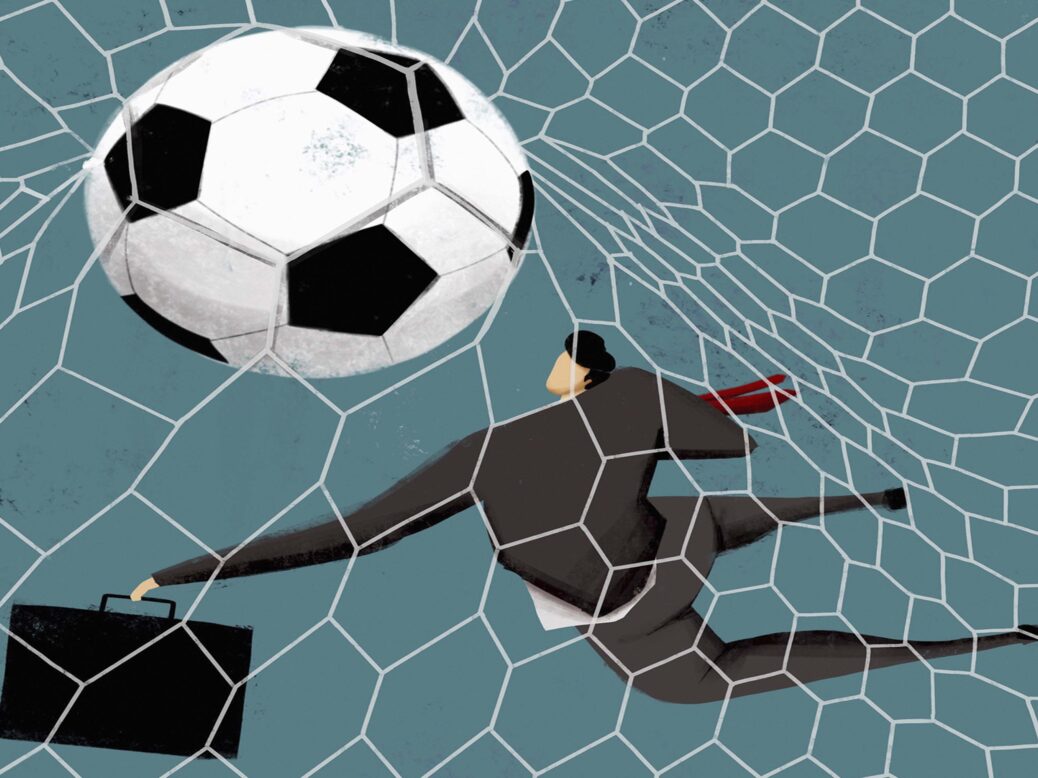
In 2018 the legendary Brazilian footballer Ronaldinho filmed a video for his 18 million Twitter followers promoting something called the Ronaldinho Soccer Coin project. One or two things about it seemed a little strange. For starters, his name was spelled “Ronaldino” in the video caption. There were also precious few details available about the “soccer coin” he was endorsing, a new cryptocurrency in the form of digital tokens whose benefits were not clear.
There were some vague promises about being able to take part in virtual e-sports tournaments hosted by Ronaldinho himself. The Maltese-registered company behind the scheme pledged that the proceeds would be used to provide football equipment to children, although it was never quite specified what equipment and which children. Still, it was definitely the real Ronaldinho, one of the best and most adored footballers of his generation, and so this was definitely a real thing.
Alas, more than three years later all appears eerily quiet on the Ronaldinho Soccer Coin front. None of the scheme’s promises ever materialised. The currency itself is worthless and the company’s website has lain dormant for almost a year, with no indication of who was behind it. This feels like a pretty appropriate induction to the weird and opaque world of football cryptocurrency, where the promises are lavish, the names are household and the rewards depend largely on where you sit in the crypto food chain.
[see also: Why NFTs are not a new way to make money]
These days there is barely a footballer of note who has not been inveigled into promoting some sort of crypto-commerce: usually in the form of non-fungible tokens (NFTs), digital assets imbued by their creators with magical worth. In November the Manchester United footballer Paul Pogba urged his social media followers to invest in CryptoDragons, a virtual gaming platform in which users buy dragon eggs (at the time of writing a single egg costs around £1,800), hatch them and send them into battle online.
Meanwhile, a digital football trading card game called Sorare has attracted a number of prominent players to the project. The idea is that you buy footballers in the form of virtual cards – using cryptocurrency – and earn rewards based on how they perform in real life. The rarest cards, featuring the best players, change hands for thousands of pounds. France international Antoine Griezmann is a prominent investor and Barcelona’s Gerard Piqué is an adviser; both have been eagerly promoting the platform online.
In this slightly unreal, even dystopian virtual sphere, items can be worth whatever people say they are. NFTs have transformed the art market, and sport is scrambling to grab a piece of the action. Seventeen of the 20 Premier League clubs have signed deals with cryptocurrency companies. Meanwhile, the home of the world-famous Los Angeles Lakers basketball team is being rebranded as the Crypto.com Arena, in a deal worth an estimated £525m with the Singapore cryptocurrency exchange.
In short, we are in the Wild West phase, and everyone is trying to clamber aboard. For football clubs, cryptos are a handy way of supplementing or diversifying existing revenue streams, perhaps with half an eye on the UK government’s forthcoming white paper, which is expected to restrict or ban gambling companies from sponsoring football shirts.
Manchester City and Arsenal are among the clubs to have launched “fan tokens” in conjunction with an app called Socios. A fan token is a sort of digital share in the club, allowing the owner to vote on decisions, albeit largely trivial ones such as pre-match music or the motivational slogans displayed in the dressing room.
[see also: Why the Bitcoin crash won’t halt the growth in crypto assets]
For clubs with a broad fanbase, the crypto space is a means of monetising fandom without selling a single extra ticket or replica shirt: it reimagines supporting a club as a paid privilege. It’s not hard to envisage a future in which fan tokens are required to watch matches, buy merchandise, attend autograph sessions: a hierarchy of devotion in which those with the deepest pockets get closest to the altar. For crypto platforms, football offers a route into a large, young, tech-savvy, and often risk-embracing audience. Endorsements from players can confer instant legitimacy and buzz for products that are either extremely new or may not even exist yet. For players, the partnerships are easy money.
Fan tokens are not regulated by the UK Financial Conduct Authority, and so many platforms operate in a sinister secrecy, with little transparency about how they are run and who is behind them. The platforms insist they are selling souvenirs rather than investments. But the volatility of the market – in which prices can fluctuate wildly and without notice – leaves users at risk of losing everything in a game heavily weighted against them, buying assets that could end up worthless.
There’s a certain irony that the rise of footballing crypto schemes coincides with the release of the government’s fan-led review into footballing governance, which advocates giving supporters a bigger stake in the game. The irony is that the game itself – clubs, players, governing bodies – has long been dreaming up new ways of exploiting its captive audience, converting fans’ sentiment and credulity into cold cash. Close off one avenue and it simply tries another.
This article appears in the 01 Dec 2021 issue of the New Statesman, The virus strikes back






